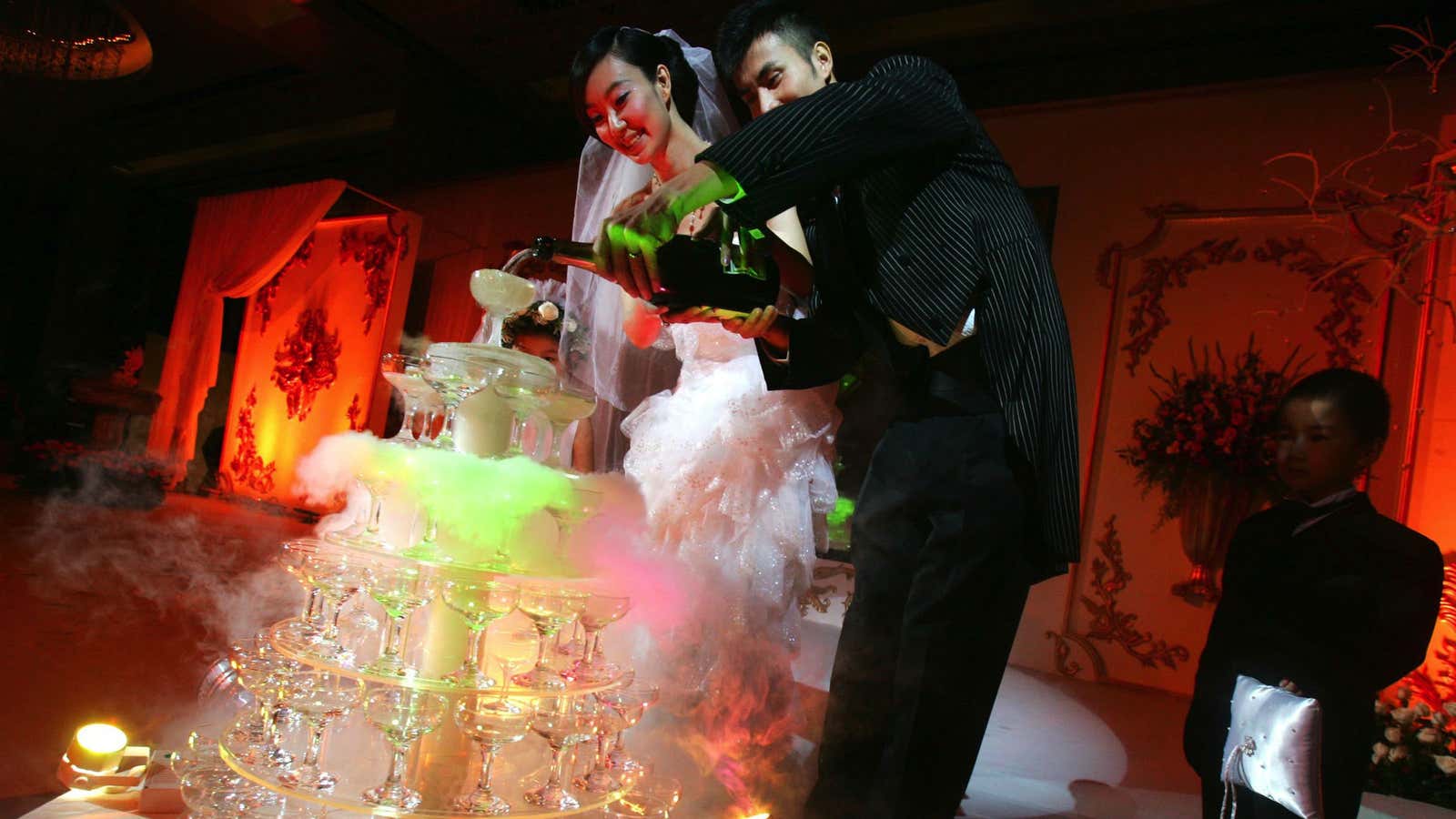Chinese authorities are adopting a French attitude about the making of Champagne. In other words, ”It’s not Champagne if it’s not Champagne.”
On May 27, Chinese authorities registered Champagne as an official label (link in French) to be used only for wine hailing from the French region for which the sparkling drink is named. Some analysts think China is using the Champagne deal to cozy up to France and put pressure on the UK. Chinese-British relations have been cool since British prime minister David Cameron met the Dalai Lama last year.
Champagne producers and president Francois Hollande have been lobbying countries to restrict use of the name. In France, only wine made in officially designated vineyards in France can be labeled Champagne. But in the US, up to 50% of sparkling wine (paywall) sold is labeled Champagne despite not being from the region, according to the US Champagne Bureau.
By banning Chinese Champagne copycats, French producers hope to gain an edge in China’s growing luxury wine and liquor market as sales slow elsewhere. Last year, global sales of the sparkling wine fell 4.4%, mostly because of a 9% drop in France, where half of all Champagne is consumed.
Still, Chinese citizens are less taken by the beverage than other imports like Cognac and red wine. Sales of sparkling wine account for only 0.5% (pdf, registration required) of Chinese wine consumption (even though sales are expected to grow 27% between 2012 and 2016, according to Vinexpo, a wine trade fair, and International Wine & Spirit Research). “The Chinese ignore the sparkling wines right now,” Robert Beynat, chief executive of Vinexpo, told the Wall Street Journal (paywall) in March.
The hitch, according to some, is temperature and taste: cold, acidic Champagne doesn’t fit mainland tastes for Chinese drinks like baijiu, a white grain liquor that is served at room temperature. There’s also a language barrier. The term for sparkling wine, qipao jiu, could also be translated as “blister wine.”
